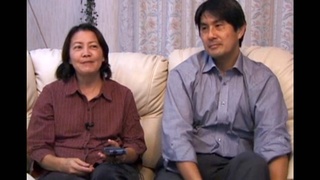Interviews
I’m American, but my home is Japan
I’m American. I live in Japan. I love Japan. I love the Japanese people. I love the Japanese beliefs—the way they’re very honest, they’re loyalty. But I don’t know what it is. I’m American, and I’m proud to be an American. I’m proud to be a part of the United States. And I’d die for the country. And I couldn’t say I would be able to go into the military here and die for Japan. So that way, I’d say I’m American.
This is my home. It’s weird. It’s like I’m being hypocrite about everything. This is my home. I have a house here. My family’s here. I have a dog. I have three cars here. Everything’s set here. I go home to Hawaii, I don’t feel like I live there. I don’t feel like I belong there. I feel like I’m a outsider.
I see that Hawaii style, that American style, and I don’t like it. We drive to the gasoline stand, and we go to full service and they look at me like, “Why are you guys driving full service? Go self?” It’s like they come walking out like, “Huh.” And you come to Japan, there’s no tip in this country. They come out running, “Thank you for coming to our stand.” They’re wiping our window, doing everything they can for the car. So I love that. I love Japan. It’s my home.
But I’m…if you have to put it down simply, I’m American with Japanese blood living in Japan and taking the country as his home. And in a sentence, if you want to phrase Enson Inoue, that’s what I would say.
Date: October 14, 2003
Location: Saitama, Japan
Interviewer: Art Nomura
Contributed by: Art Nomura, Finding Home.








